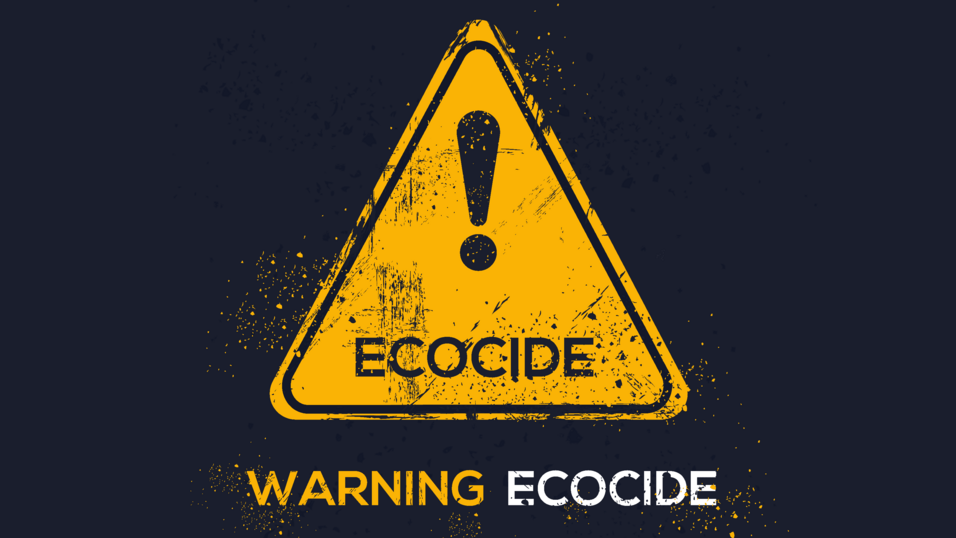Pascal Pichonnaz (Chair; ELI President; Professor, University of Fribourg) welcomed participants. He pointed out the timeliness of the ELI Report, which could support reflections at EU level, where the revision of Directive 2008/99/EC on Protection of the environment through criminal law is entering a trilogue, as well at other levels.
Fausto Pocar (Project Co-Reporter, Professor Emeritus of International Law) presented the ELI Report and stressed that creating a new crime of ecocide poses three main difficulties, namely identifying: (1) the appropriate definition of the conduct that needs to be penalised and should be punishable (actus reas); (2) when a person is responsible for such a conduct (mens rea); and (3) the appropriate penalty. He explained ELI’s approach to the first two issues. The actus reus must consist in: (a) a typified behaviour, ie, behaviour which European Union law has identified as unlawful and dangerous for the environment; (b) resulting or likely to result in severe damage, which is also long-term, or in severe damage, which is also irreparable or irreversible. The actus reus must have been committed with the following mens rea: wilful intention (dolus malus) or acceptance of the consequent risk of damage (dolus eventualis or recklessness).
Robert Bray (Project Co-Reporter, former Head of Secretariat of the Legal Affairs Committee of the European Parliament) pointed out the role that ELI’s Report, especially its approach to actus reas and expert evidence, still has to play in the triologue. He reflected further on the solution of dolus eventualis and the Report’s approach on administrative authorisations. Lastly, he presented the Report’s proposal for Model European Council Decision on the utilisation of the European Public Prosecutor's Office (EPPO) to bring proceedings for environmental crimes, especially ecocide.
Marie Toussaint (Member of the European Parliament) presented recent legislative developments in the European Parliament, in particular concerning the revision of Directive 2008/99/EC. She pointed out issues connected to the inclusion of the term ‘ecocide’, the definition of ‘ecocide’ and ‘unlawfulness’ as well as the proposed sanctions for ecocide. She thanked ELI for the huge work done, which supports the efforts in regulating environmental liability and contributed to the negotiations within the European Parliament. She added that the triologue with the Commission and Council will commence in May, and it will be now important to convince Members States about the proposal.
Peter Csonka (Head of Unit Criminal Justice, European Commission) thanked ELI for the Report and reflected on the legislative developments at EU level. He presented the objectives behind the Commission’s proposal to revise Directive 2008/99/EC and issues that might come up in the trilogue, such as sanctions and the introduction of aggravating circumstances. He observed that while ecocide as a stand-alone crime is not included in the mandates of the Institutions, the text is getting close to it in some respects. Csonka said that the ELI Report goes, in his view, in the right direction and picks up on the international debate. Some further work is needed on the definition of ecocide in the EU’s proposal, which has to be based on a specific actus reus, as mentioned in the ELI Report. He voiced support for the definition of unlawful authorisations and for the structure that is adopted vis-à-vis administrative environmental law and the extension of the EPPO’s competences to serious climes. While it might not be possible to include ecocide into Directive 2008/99/EC, due to the positions of Members States, the debate surrounding ELI’s Report is useful for future developments.
Jojo Mehta (Co-Founder of Stop Ecocide) congratulated ELI on the comprehensive Report and presented advocacy efforts for the recognition of ecocide as an international crime. She reflected on key potential benefits of such recognition, such as the re-enforcement and support of the existing body of laws to protect the environment as well as its potential to address strategic positive change. The ELI Report includes a definition and recommendations that are specific to the EU. As such, this is a hugely useful and timely contribution to the global debate. It focuses on core criteria around which EU Member States can legislate, which is a politically practical approach that could be welcomed by Member States.
Arnaud Nussbaumer-Laghzaoui (Co-Founder, Avocat e.s pour le Climat; Professor, UniDistance Suisse) thanked ELI for the remarkable work done. He provided feedback on the definition of ecocide, including the difference between environmental and climate protection. He also considered issues connected to the liability of legal persons and the importance of ensuring the participation of NGOs by granting them the possibility to commence prosecution.
The presentations were followed by a Q&A session with attendees, during which the possibility to extend the EPPO’s competences and the difference between environmental liability and accountability in the context of ecocide were discussed, among other things.
The webinar recording is available below.

